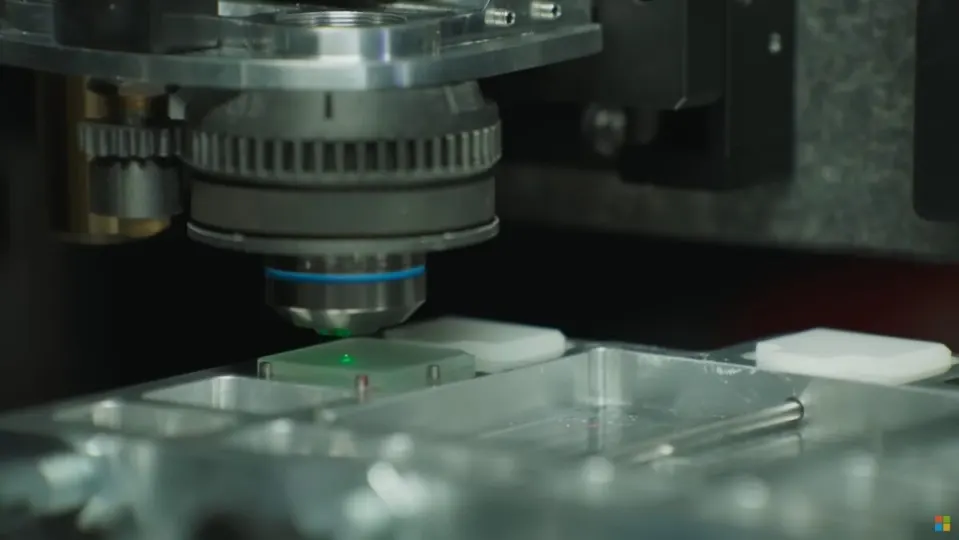There will be a day when humans are scattered throughout the galaxy. Earth will have a few thousand more years, and our knowledge will be as vast as the immensity of the ocean. Then, we will need hard drives that can store our knowledge for millennia.
Luckily for us, Microsoft is developing the data storage of the future. It’s much more durable and straightforward than any hard drive. According to the company, for each disk, they can store 3,500 movies or 1.75 million songs.
Microsoft Research, the R&D branch of the Redmond software giant, is experimenting with storing vast amounts of data on glass plates in a futuristic initiative called “Project Silica.” If successful, it could be used to store information for thousands of years without degradation.
The hard drive that will allow our photos to reach our great-great-grandchildren
Microsoft researchers store data in glass using three-dimensional pixels called voxels. Unlike classical storage methods such as rotating magnetic disks, the “saucer-sized glass plates of Project Silica will store data for thousands of years and create sustainable storage for the world,” as described by Microsoft.
Magnetic storage, although widely used, is problematic, according to Microsoft. Due to its limited lifespan, data needs to be recopied frequently, increasing energy consumption and operational costs over time.
“A hard disk drive might last five years. A tape, well, if you’re lucky, might last ten years,” explains Ant Rowstron, Distinguished Engineer at Project Silica.
According to Microsoft, data storage in glass is a concept dating back to the 19th century when people stored individual photographic negatives on glass plates.
Today, however, Microsoft sees the potential to store multiple terabytes of data on a small glass disk: around 1.75 million songs (roughly 13 years of music) could fit on a small glass disk.
The goal of Project Silica is to write data onto a piece of glass and store it on a shelf until needed. Once written, the data cannot be modified.
Microsoft describes the process as follows:
- “The data is stored in glass through a four-step process: writing with an ultra-fast femtosecond laser, reading through a computer-controlled microscope, decoding, and finally, storage in a library. The library is passive, with no electricity in any of the storage units. The complexity lies in the robots, which are charged while idle in the lab and wake up when data is needed. They go up to the shelves, pick up the glass, and return to the reader.”
- “At first, the laser writing process was inefficient, but after years of refinement, the team can now store multiple terabytes on a single glass plate that could last 10,000 years. To give you an idea, each plate could store about 3,500 movies. Or enough movies to play continuously for over half a year without repeating.”
What could this method of crystals be used for?
According to Microsoft, glass storage is still in its early stages, and experts believe it will need 3 to 4 more stages of development before it can be used commercially. However, the advantages are clear: it’s durable, sustainable, and cost-effective.
The main costs occur in the initial stages when data is embedded into these high-strength glass plates, but ongoing maintenance costs are minimal once stored.
The Elire Group is collaborating with Microsoft Research’s Silica Project team to harness this technology in their “Global Music Vault” in Svalbard, Norway. Using silica-based glass plates, the company aims to create a permanent archive that not only withstands electromagnetic pulses and extreme temperatures but also is environmentally friendly.
This vault will complement repositories like the Global Seed Vault and the Arctic World Archive, providing a comprehensive deposit of musical heritage, from classical operas to modern hits and indigenous compositions.


